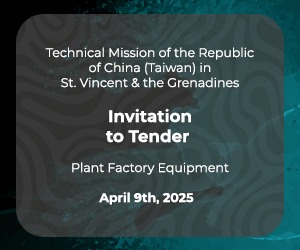Reflecting on the Historic Elections of 1951
As the colony of St.Vincent prepared for the historic elections of 1951, the political climate began to change, particularly after the announcement that it was to be fought under Adult Suffrage. The political scene, in fact, began to light up with elections for village and small town councils that were held in 1950.{{more}} Manifestos and notices about their intent to stand as candidates were being published by different individuals. Among them was Samuel Eric Slater who through a notice in the Vincentian newspaper informed the public that he intended to contest the upcoming elections. By June, four months before the elections, he produced a 15 point manifesto which spoke about the establishment of credit unions and about providing a living wage for every working man, including civil servants. In the following month, an advertisement with a picture of Herman Young was also seen under the caption âUnion Candidate and The Poor Manâs Friendâ.
Last week I mentioned the significance of May Day, May 1, 1951. After three months of organisational work, the new union of George Charles was able to mobilise some 8,000 people according to information it provided, but it attracted about 2,000 to its May Day Rally and Launch. After a joint church service, hosted by the Anglican and Methodist clergy, the members of the union marched to the Victoria Park. The Vincentian newspaper described the march: âThe crowd which had now grown to about two thousand headed by their leader, wearing evening dress with a six -inch scarlet red sarong across his shoulders and bearing a wooden sword marched to the tune of two brass bands all the way to Victoria Park singing patriotic songs for a distance of about 3 miles.â
Addresses were given by S.F Bonadie, Chairman of the Town Board, the Administrator, the Labour Commissioner R.N Jack, the Registrar of the Supreme Court, Mr. Evans Morgan the Unionâs Grievance Officer, Herman Young and the leader George Charles. The Registrar, who dealt with the law in relation to trade unions, read the proclamation about the recognition of the status of the union. He was quite aware of the rumour that the new union was going to contest all eight seats and spoke disparagingly of their ability to hold âtheir own in a fair- to middling debateâ and suggested that âon questions of any technical significance nearly all will be completely at sea.â
In any event, the rally was the kick off the new union needed. It then began to hold meetings around the country shortly after. At a meeting held later in May, Eric Gairy of Grenada was one of the guest speakers along with Ebenezer Joshua who was then described as a âvisiting member of the Butler party of Trinidad.â Joshua had actually arrived in the colony by the CLM Tannis on May 18. J.V Patterson, writing in the newspaper, stated after one of their meetings that âwhatever their shortcomings, these men cannot be treated with indifference. They feel that they have a message and a mission.â
George McIntosh, leader of the Labour Party, the political arm of the St.Vincent Working Menâs Association, was put on the back foot, made to defend his age but making the point that age brings with it experience. He touted the achievements of his Labour Party, noting that among its successes was the achievement of Adult Suffrage. In a letter to the Vincentian, he asked those with âgreater knowledge and better intelligenceâ to rally around the Working Menâs Association, noting that the experience gained over the years was worth a lot.
As was to be expected, the Vincentian newspaper was critical of the new political dispensation that was about to be put in place. Its editorial of August 25, 1951, had the following to say; â…It is the consensus of opinion that our councillors are practical failures, since that is so, now that the colony is to embark on a new constitution that will place this community in line with the best brains, the best minds and the best character along with other progressive and advanced colonies one would have expected to be able to cast oneâs vote for men of a better and higher calibre, in short, for the best sons the colony had to offer…â It appealed to the man in the street to vote for responsible people.
For the historic elections scheduled for October 15, there was a three way fight in the constituencies, with the exception of North Leeward. The three way battle was between McIntoshâs Working Menâs Association and the United Workers Peasant and Rate Payers Union of George Charles, with the others being independents. Claude McIntosh Richards of South Leeward withdrew later because of ill health. He was the candidate for the Working Menâs Association in South Leeward. Some well-known figures who contested those elections were C.W Prescod, St. Aubyn Cato and Dr. Frank Ellis. The Vincentian newspaper of October 20 reflected what had happened through its headlines âUnion Workers Create Political Landslideâ. It was however not in agreement with what was happening. It stated its position: âWe may be making progress physically, but certainly not intellectuallyâ
The elected members were: North Leeward- Sam Slater; South Leeward- Herman Young; Kingstown- Rudolph Baynes; South Windward- Evans Morgan;St. Georgeâs- Julian Baynes; Central Windward- George Charles; North Windward- Ebenezer Joshua and the Grenadines- C.L Tannis. It took one hundred and eighty eight years since the British conquered St.Vincent and imposed its form of government for the working man to get a vote and have the opportunity to influence the direction and nature of politics. They have been into it now for sixty years. What impact have they had on shaping the kind of politics that we have been engaged in over the past sixty years? This we will take up in subsequent articles.
Dr Adrian Fraser is a social commentator and historian.












